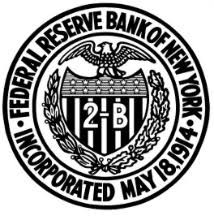Course Schedule and Contents
Week 1 – Tuesday 24th February
Overview and Standardised Approach
- Overview of the FRTB framework
- The Regulation
- Progress of FRTB implementation around the world
- FRTB as part of Basel III
- Capital impact of FRTB
- National implementation: Why and how regulators are modifying FRTB rules
- The FRTB Standardized Approach
- SBA
- RRAO
- Standardized DRC
- CVA Risk in FRTB
Practical Example:
- Lab: Calculating SBA capital
Week 2: Tuesday 3rd March
Starts with Q&A session from week 1
The Internal Model Approach
- Expected Shortfall vs Value at Risk
- Liquidity adjusted and stress-calibrated Expected Shortfall
- The impact of liquidity mismatches
- Capitalizing Non-Modellable Risk Factors
- Market observations vs risk factor modellability
- NMRF capital calculation and full revaluation pricing
- RFET as a process
- Internal model DRC
- Quantitative requirements
- IRB dependencies
Practical Examples:
- Lab: Calculating the ES Risk Measure
Week 3: Tuesday 10th March
Starts with Q&A session from week 2
Desk Eligibility, Desk Structure and the Trading Book/ Banking Book Boundary
- IMA Permission Requirements
- Backtesting and P&L Attribution Test (PLAT)
- Implications of the P&L attribution test for desk strategy
- Capital implications of the PLAT
- The trading book/ banking book boundary
- Process and Control implications
- Internal Risk Transfers (IRTs)
- Defining desk structure
Practical Example:
- Lab: Market Risk Capital Calculation under FRTB
Week 4: Tuesday 17th March
Starts with Q&A session from week 3
Making FRTB work
- Model Risk Management and Internal Audit for FRTB
- Regulatory Analysis using Large Language Models (LLMs)
- Operating Model Impact of FRTB
- Data requirements of FRTB
- Impact of FRTB on the system landscape and IT infrastructure
- Setting up an FRTB implementation project
- Challenges and pitfalls when implementing FRTB
- Your next steps
Practical Examples:
- Mini-Lab: Working with the regulation
Concludes with Q&A session for week 4
































